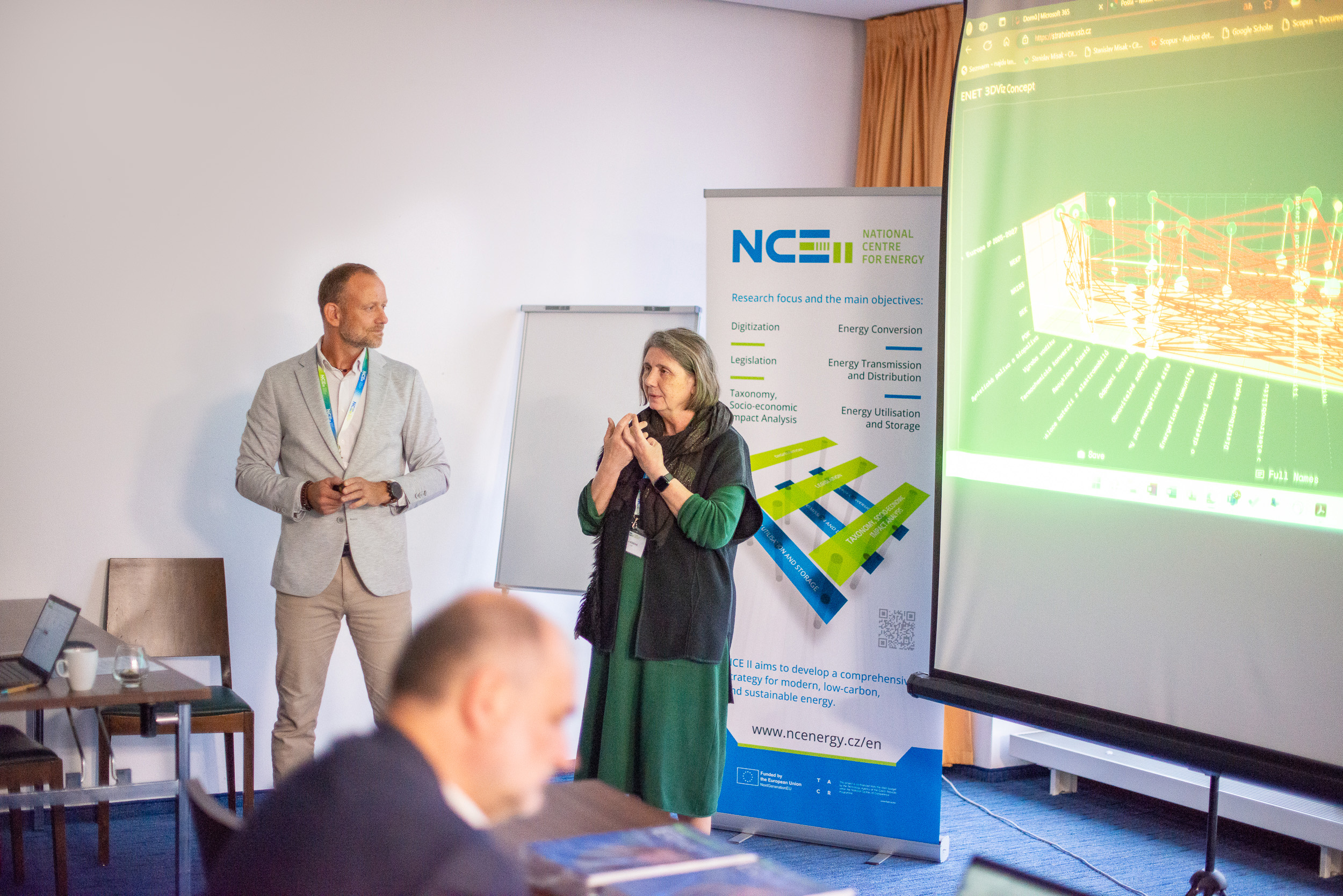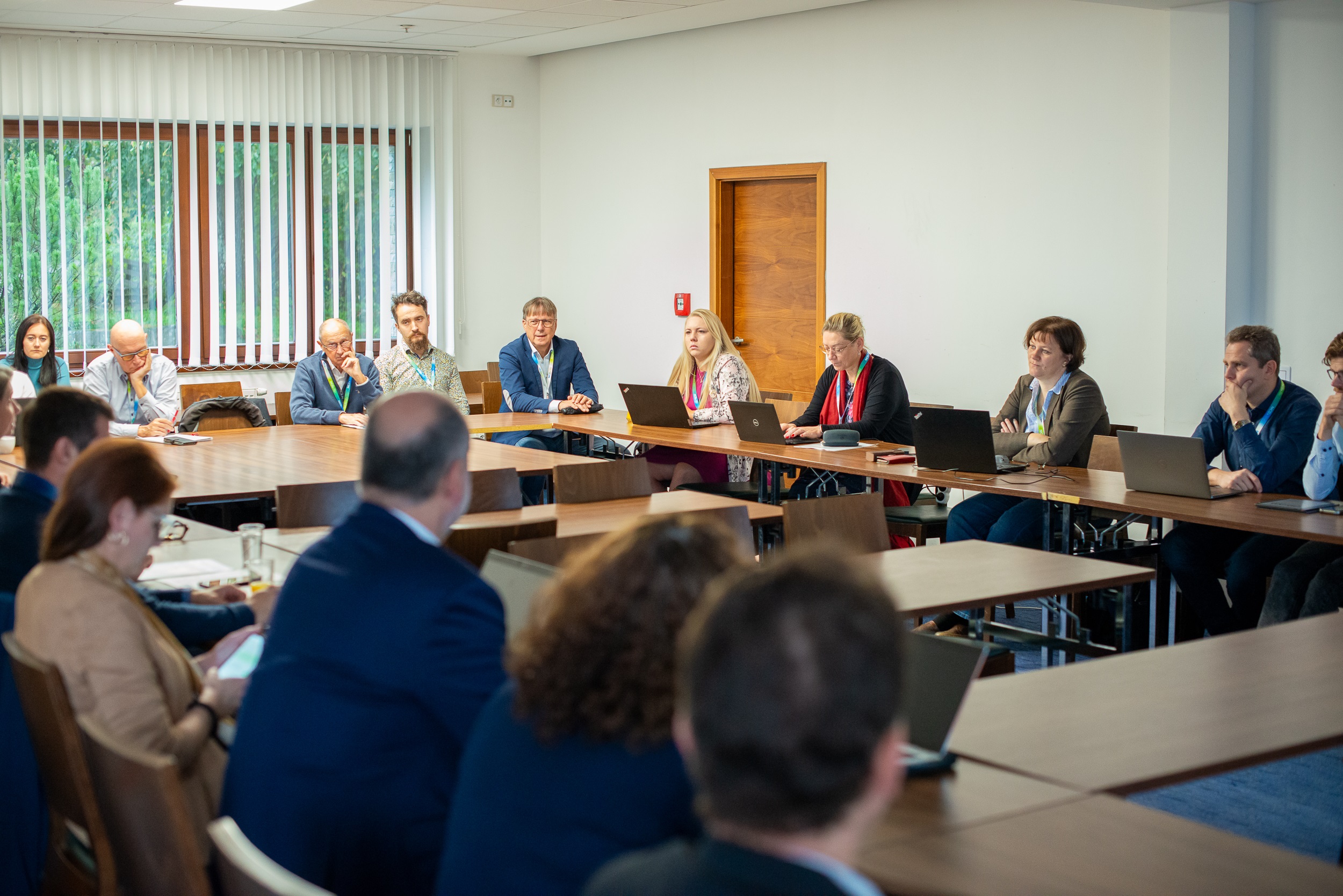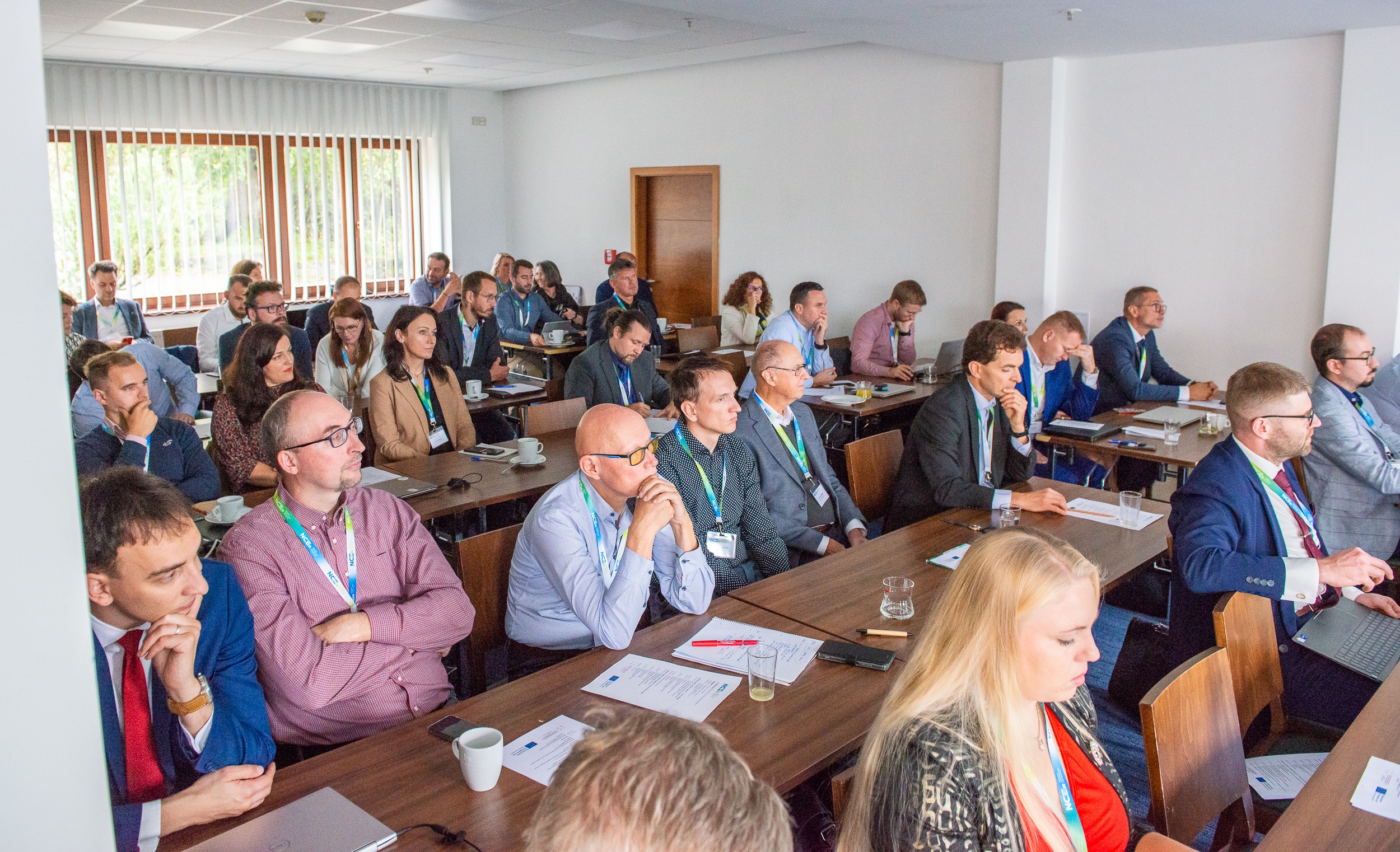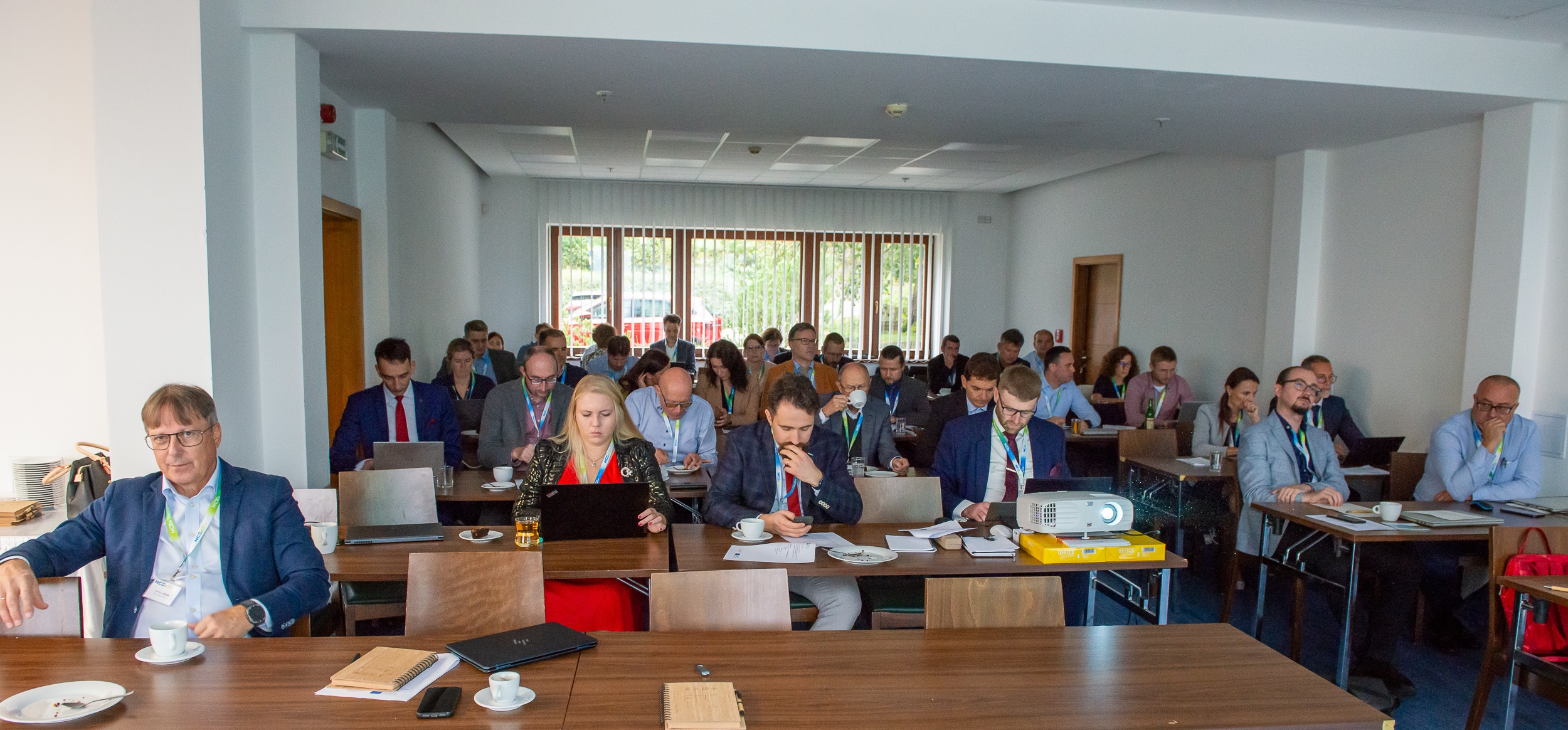The NCE II project, with a budget of 873 million CZK, is co-financed by the Technology Agency of the Czech Republic under the National Recovery Plan and the European Instrument for Recovery and Resilience, aims to develop a comprehensive strategy for modern, low-carbon and sustainable energy. Through eleven sub-projects, it reflects the current geopolitical and socio-economic situation, aiming to achieve the Czech Republic's key objectives - reducing greenhouse gas emissions, achieving carbon neutrality by 2050 and ensuring long-term energy and raw material independence.
"A critical mass of knowledge in the field of energy has gathered here, covering a broad spectrum of topics from current and future production technologies, energy conversion, transmission, and distribution, to its use and storage. This creates a true national knowledge hub, whose contributions can have a significant impact on the energy sector, both from a technical perspective and as expert support for the state energy policy," said Rut Bízková, NCE II consultant and representative of the Technology Agency of the Czech Republic.

The workshop was opened with an introductory speech by the principal investigator and director of CEET VSB-TUO, Stanislav Mišák. He then focused on the sub-projects that form the basis of current research in the field of sustainable energy. The key topic was innovative solutions for community energy systems, including support for energy storage and transformation. He mentioned the challenges faced by the individual projects, particularly the effort to develop technologies that not only do no harm to the environment but also contribute to local energy self-sufficiency.
Thursday's program was dedicated to the presentation of results in the application segments of Energy Conversion, Energy Use and Storage, and Energy Transmission and Distribution. For example, a project developing Organic Rankine Cycle (ORC) units for community energy systems and industrial waste heat utilization was introduced. Collaboration with industrial partners, such as Doosan, has enabled the development of new technologies that are in advanced stages of progress and are scheduled to be launched by the end of the year.
"I think it is very important for the participants of the National Competence Centre to meet regularly and exchange the latest findings from their research. This exchange of information is what allows mutual advancement in the field of innovation. Another great value of these meetings is the connection between different scientific disciplines - a multidisciplinary approach prevents scientists from becoming confined to the details of their own field. I also appreciate the fact that NCE II is also moving forward on strategic issues in the energy sector, which was one of the key points of this meeting," said Martina Krčová, representative of the Energy Regulatory Office.

Another important topic of the workshop was waste management, with a focus on energy recovery from waste and an emphasis on hydrogen. The plasma gasification technology for waste, presented by Tomáš Najser from VSB-TUO, offers a solution for disposing of liquid substances containing persistent organic pollutants, such as those found in delor oils and pyrolysis liquids. The proposed technology allows the conversion of these harmful substances into usable forms of energy, which is a significant step towards sustainable energy.
In the area of energy storage, Jiří Pospíšil from the Brno University of Technology (VUT) presented computational solutions for high-temperature heat storage in granular materials, which could open new possibilities for large-scale energy storage. This research includes unique simulation tools and concepts for active and passive heat accumulators.
"The presentations and discussions at the workshop are clear evidence to me that the centre fully understands its role and importance. National Competence Centres are not just about connecting research organizations and companies but, above all, about creating added value. The centre should not be a mere collection of individual projects but an entity that generates knowledge and translates it into strategic decisions. The goal is to create a platform where public administration, politicians, and other key players can draw on deep expert knowledge. I also appreciate the focus on unifying research. The fragmentation of research projects, where different teams work on similar topics without awareness of one another, is a problem that this project successfully overcomes. There is a clear effort to concentrate the knowledge base in one place, significantly increasing efficiency and making the results more usable. This integration is now more evident than ever within the centre. However, it is crucial that all members of the centre, not just its leadership, share this approach. Every researcher should consider the real impact their work will have on society and the energy sector as a whole when preparing their projects or results," said Michaela Němcová, representative of the Technology Agency of the Czech Republic.

Research teams are also focused on developing new technologies for the decarbonization of industry. Jan Hrdlička's team from the Czech Technical University in Prague (ČVUT) is working on alternative fuels and technologies that ensure efficient processing of waste gases. The goal is to use these gases in energy and construction, particularly through the development of sorbents for capturing heavy metals and other harmful substances.
Another interesting moment was the presentation of carbon capture technology, where Rotating Packed Beds (RPBs) emerged as a promising solution for efficient CO2 capture. The research team led by Jiří Pospíšil demonstrated that this system is capable of capturing up to one ton of CO2 per day, which could significantly contribute to reducing the carbon footprint of industry.
"For me, the workshop was valuable mainly because it confirms that NCE II is creating an impressive knowledge base. This base is capable of not only producing specific outputs applicable to industry but also contributing to further strategic planning and the development of the Czech Republic's energy sector. What I consider as very important is that the political representation should listen to the experts from such national competence centres and use their knowledge and know-how to set the economic policy of the Czech Republic," said Gabriela Nekolová, member of the Economic and Social Council of the Ústí Region and member of the Centre's Council.
The conference was proof of how close cooperation between research teams, industry, and other partners can lead to concrete solutions that could reshape the energy industry, both in the Czech Republic and globally.

“From the beginning, the National Centre for Energy II was conceived as a knowledge domain within an innovation ecosystem composed of representatives from the public and state sectors, who generate demand for a comprehensive strategy for sustainable energy in the Czech Republic, and representatives from the research and applied sectors, who jointly develop new methods and technologies as tools for transforming fossil fuel-dependent energy systems towards sustainable energy systems. The presentations of sub-projects within various application segments clearly demonstrated the responsibility of all participants in fulfilling the Centre's strategic goals—not only in the area of technical applied research but also with an awareness of the socio-economic impact of the developed solutions. What I perceive with the greatest importance is the current progress of the strategic sub-project, which is intended to serve as an effective tool at the government level of the Czech Republic for validating the direction of the energy strategy for both the medium and long-term timeframes. I believe it is well-designed and anchored," said Stanislav Mišák, the principal investigator and director of CEET VSB-TUO.